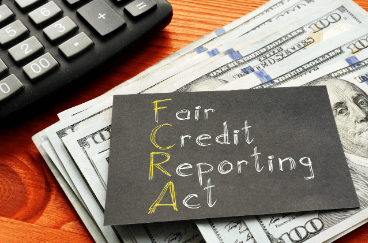How to Use the FCRA to Improve Your Credit Report

Keeping a precise credit report is essential for financial well-being and protection. The fair credit reporting act lawyers gives consumers the ability to dispute inaccuracies, protect against identity theft, and verify the accuracy of their credit information. These rights empower individuals to proactively manage their credit profiles through addressing errors, setting fraud alerts, and verifying obligations. Comprehending and practicing these rights can prevent unauthorized actions, errors, and possible damage to credit ratings.
Set up fraud alerts.
Prevent identity theft by putting a fraud alert on your credit report. This alerts potential lenders of potential deception and necessitates extra confirmation before establishing new accounts.
Put a hold on your credit.
To enhance security from unauthorized activity, think about putting a freeze on your credit. Derogatory in credit this hinders the opening of new accounts without your express permission.
Confirm obligations
You are entitled to confirm the validity of any debt that appears on your credit report. Asking for confirmation helps guarantee that you are not making payments for an incorrect debt.
Get rid of old data.
Unfavorable data such as delayed payments or bankruptcies only stays on your credit report for a certain amount of time. Comprehend these timelines and challenge data that goes beyond the reporting period.
Notify unauthorized queries
Illegitimate investigations on your credit report may decrease your score and suggest possible identity fraud. If you discover unfamiliar queries, challenge them right away with the credit reporting agencies. Give comprehensive details regarding the questionable requests, including specific dates and the names of the companies involved.
Monitor any modifications in credit reports.
Frequently check your credit reports from the three main bureaus for any alterations, errors, or indications of identity theft. This proactive method assists in spotting and handling issues quickly. Establish reminders to review your reports every year, or more often if issues are suspected.
Verify that personal details are correct
Confirm that the personal details on your credit report, such as your name, address, and Social Security number, are accurate and current. Incorrect details can make it hard to access credit or other financial products. Arguing and rectifying mistakes is crucial.
Make sure that reporting on payment history is done promptly.
Make sure that your credit report accurately shows your payment history. Disputing any errors is crucial to prevent a significant drop in your credit score from late or missed payments.
Watch out for any new accounts.
Verify your credit report for any unfamiliar accounts. Unlawful accounts indicate possible identity theft and should be contested promptly.
Fix mistakes in loan or credit card details
Examine all loan and credit card details in your credit report to ensure they are correct. Wrong account numbers, interest rates, or balance details can harm your credit rating.
Verify the precision of the most recent credit requests.
How to remove a charge off from your credit report Inspect recent credit applications to verify that the details align accurately with your credit report. This aids in avoiding mistakes that could harm your credit rating.
Assess the creditor’s reaction to disputes.
After filing a disagreement, thoroughly examine the creditor’s reply to verify the accuracy of the information and its relevance to your issues. If you are not satisfied with the answer, you might have to raise the conflict further.
Update your personal details with credit reporting agencies.
Ensure that your name, address, and phone number are current with each of the three credit bureaus to protect your personal information. This aids in avoiding mistakes and guarantees that you get crucial notifications.
Verify the precise reporting of credit checks.
Examine the lineup of credit inquiries on your report. Unapproved requests may decrease your credit rating. If you discover any unfamiliar inquiries, challenge them right away to safeguard your credit.
Make sure accounts are categorized correctly.
Confirm that your accounts are accurately classified (credit card, installment loan, mortgage, etc.) in your credit report. Incorrect classification can impact the evaluation of your credit.
Challenge inaccurate personal identification details
Make sure to report your name, Social Security number, date of birth, and address correctly. Any inconsistencies may result in identity theft problems and harm your credit score.
Examine recent credit transactions to ensure their correctness.
Review recent credit transactions, payments, and balance updates to confirm their accurate representation on your credit report. Any mistakes or differences should be challenged right away.
In Conclusion
To sum up, the FCRA gives consumers important resources to protect their credit details and verify its correctness. Individuals can enhance their protection against identity theft and financial discrepancies by questioning errors, activating fraud alerts, and confirming responsibilities. Frequent oversight and prompt fixing of mistakes are crucial habits for keeping a sound credit history. Effectively using these rights not only protects your credit integrity but also enables you to confidently manage and enhance your financial standing.





